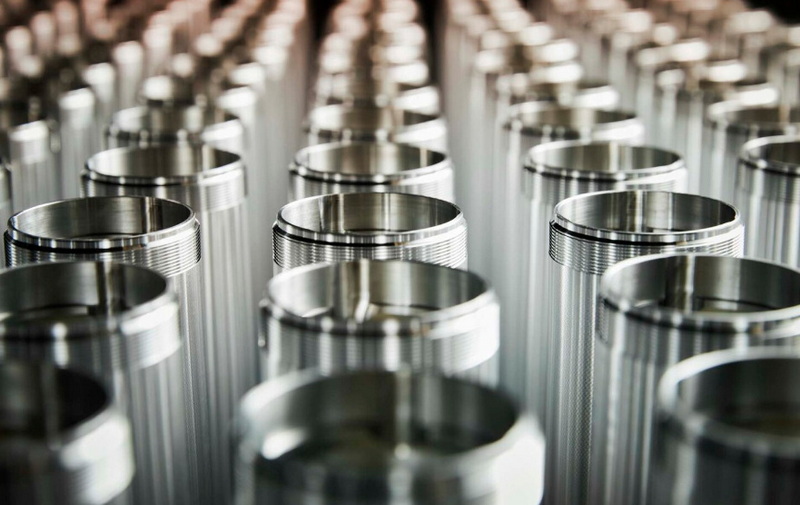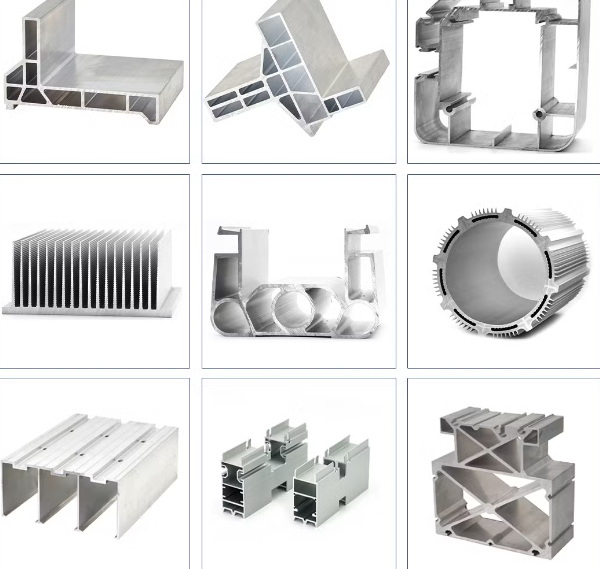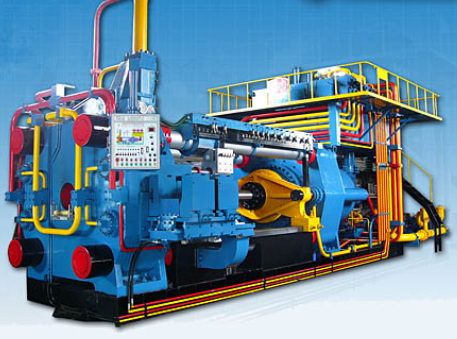Content Menu
● Introduction to Aluminum Alloys
>> 1xxx Series
>> 3xxx Series
>> 5xxx Series
>> 6xxx Series
>> 7xxx Series
● Aluminum Extrusion Process
>> Step-by-Step Process
● Choosing the Best Aluminum Alloy for Extruder Constructions
>> Popular Alloys for Extruder Constructions
● Applications of Aluminum Alloys in Extruder Constructions
● Factors Influencing Extrusion Process
● Conclusion
● FAQs
>> 1. What are the most commonly used aluminum alloys for extruder constructions?
>> 2. How does the choice of aluminum alloy affect the extrusion process?
>> 3. What are the key factors to consider when selecting an aluminum alloy for extruder constructions?
>> 4. What is the difference between 6061 and 6063 aluminum alloys?
>> 5. How does aluminum alloy selection impact the final product's properties?
● Citations:
Aluminum alloys have become a cornerstone in modern manufacturing, particularly in extruder constructions, due to their lightweight, high strength, corrosion resistance, and ease of processing. The choice of aluminum alloy for extruder constructions is crucial as it directly affects the performance, durability, and cost-effectiveness of the final product. This article will delve into the world of aluminum alloys, exploring their properties, applications, and the factors influencing their selection for extruder constructions.

Introduction to Aluminum Alloys
Aluminum alloys are created by combining aluminum with other elements such as magnesium, silicon, copper, and zinc. This alloying process enhances properties like strength, corrosion resistance, and weldability, making them suitable for various applications. The most common aluminum alloys used in extrusions include the 1xxx, 3xxx, 5xxx, 6xxx, and 7xxx series, each with distinct characteristics.
1xxx Series
- Composition: Pure aluminum (at least 99%).
- Properties: High corrosion resistance, excellent electrical conductivity, and good finishing capabilities.
- Applications: Often used in products requiring high thermal and electrical conductivity, such as electrical components.
3xxx Series
- Composition: Manganese (Mn) as the primary alloying element.
- Properties: Moderate strength, good corrosion resistance, and sufficient workability.
- Applications: Suitable for applications needing moderate strength, such as fuel tanks and piping.
5xxx Series
- Composition: Magnesium (Mg) as the primary alloying element.
- Properties: Moderate strength, excellent corrosion resistance, and excellent weldability.
- Applications: Commonly used in marine environments due to its high resistance to corrosion.
6xxx Series
- Composition: Silicon (Si) and magnesium (Mg).
- Properties: Good strength, high machinability, good corrosion resistance, and excellent weldability.
- Applications: Widely used in construction and automotive industries for structural components.
7xxx Series
- Composition: Zinc (Zn) as the primary alloying element.
- Properties: High strength, heat treatable, and good machinability.
- Applications: Often used in aerospace and high-stress applications.
Aluminum Extrusion Process
The aluminum extrusion process involves pushing heated aluminum billets through a die to create profiles with complex cross-sectional shapes. This process is highly versatile, allowing for the production of a wide range of components used in various industries.
Step-by-Step Process
1. Billet Preparation: The aluminum billet is heated to a temperature around 900°F (482°C) to make it soft and pliable.
2. Extrusion: The heated billet is then forced through a die using high pressure, typically up to 100,000 psi.
3. Cooling: The extruded profile is cooled either naturally or using air or water.
4. Stretching and Straightening: The profile is stretched to ensure straightness and then cut to the desired length.

Choosing the Best Aluminum Alloy for Extruder Constructions
When selecting an aluminum alloy for extruder constructions, several factors must be considered:
- Strength Requirements: For applications requiring high strength, alloys like 6061 or 7075 are ideal.
- Corrosion Resistance: Alloys with high magnesium content, such as the 5xxx series, offer excellent corrosion resistance.
- Extrudability: Alloys like 6063 are preferred for their ease of extrusion and good surface finish.
- Cost and Availability: The cost and availability of the alloy can significantly impact project feasibility.
Popular Alloys for Extruder Constructions
- 6061 Aluminum: Known for its moderate to high strength, good corrosion resistance, and excellent weldability. It is widely used in structural applications.
- 6063 Aluminum: Offers a good balance of strength, corrosion resistance, and excellent extrudability, making it ideal for architectural and decorative applications.
- 6005 Aluminum: Provides a balance of strength and extrudability, often used in structural tubing and ladder structures.
Applications of Aluminum Alloys in Extruder Constructions
Aluminum alloys are used in a wide range of industries due to their versatility and beneficial properties:
- Construction: Used in building frames, doors, and windows due to their strength and corrosion resistance.
- Automotive: Employed in vehicle frames and components for their strength-to-weight ratio.
- Aerospace: High-strength alloys like 7075 are used in aircraft parts.
- Electronics: Used in electronic enclosures and heat sinks due to their thermal conductivity.
Factors Influencing Extrusion Process
The choice of aluminum alloy affects not only the final product's properties but also the extrusion process itself:
- Extrudability: Alloys with higher silicon content, like the 6xxx series, have better fluidity and are easier to extrude.
- Thermal Conductivity: Influences the cooling rate of the extruded profile, affecting its microstructure and final properties.
- Die Design: The complexity of the desired profile and alloy characteristics dictate the die design.
Conclusion
In conclusion, selecting the right aluminum alloy for extruder constructions is a critical decision that impacts the performance, durability, and cost-effectiveness of the final product. Alloys like 6061 and 6063 are popular choices due to their balance of strength, corrosion resistance, and extrudability. Understanding the properties and applications of different aluminum alloys is essential for optimizing the extrusion process and ensuring the suitability of the final product for its intended use.

FAQs
1. What are the most commonly used aluminum alloys for extruder constructions?
The most commonly used aluminum alloys for extruder constructions include 6061 and 6063 due to their balance of strength, corrosion resistance, and extrudability.
2. How does the choice of aluminum alloy affect the extrusion process?
The choice of aluminum alloy affects the extrusion process by influencing factors such as extrudability, thermal conductivity, and die design. Alloys with higher silicon content, like the 6xxx series, are easier to extrude.
3. What are the key factors to consider when selecting an aluminum alloy for extruder constructions?
Key factors include strength requirements, corrosion resistance, extrudability, cost, and availability. The intended application of the extruded product dictates these considerations.
4. What is the difference between 6061 and 6063 aluminum alloys?
6061 aluminum is stronger and often used in structural applications, while 6063 is more ideal for extrusion due to its ease of extrusion and good surface finish, making it suitable for architectural applications.
5. How does aluminum alloy selection impact the final product's properties?
Aluminum alloy selection directly impacts the final product's strength, corrosion resistance, weldability, and surface finish. Different alloys are suited for different applications based on these properties.
Citations:
[1] https://www.sunrise-metal.com/aluminum-extrusion-alloys/
[2] https://clintonaluminum.com/6061-aluminum-vs-6063-in-extrusion-applications/
[3] https://www.howardprecision.com/a-comparison-of-6063-vs-6061-for-aluminum-extrusions/
[4] https://www.youtube.com/watch?v=iiGlq7408ME
[5] https://www.chaluminium.com/how-does-aluminum-alloy-selection-affect-the-extrusion-process-and-final-product-properties
[6] https://starext.com/news/aluminum-extrusion-finishing-fabrication-frequently-asked-questions-faq
[7] https://www.xhalufactory.com/industry-knowledge/what-is-the-best-grade-of-aluminum-for-extrusion/
[8] https://veriform.ca/aluminum-extrusion-alloy/
[9] https://www.youtube.com/watch?v=baM5hNnBcT8
[10] https://americandouglasmetals.com/2024/08/15/aluminum-extrusions-explained-alloys-and-their-properties/
[11] https://technical.europe.misumi-ec.com/en/support/solutions/articles/76000046645-aluminum-extrusions-general-questions
[12] http://scaluminum.com/2016/09/properties-of-aluminum-which-alloys-are-best-for-extrusion/
[13] https://www.gabrian.com/aluminum-extrusion-alloys/
[14] https://www.minalex.com/2021/10/29/10-questions-ask-aluminum-extruder/
[15] https://starext.com/frequently-asked-questions-about-aluminum-extrusions
[16] http://scaluminum.com/2018/08/aluminum-is-not-just-aluminum-the-best-alloys-for-extrusion/
[17] https://www.linkedin.com/pulse/deep-dive-aluminum-alloy-selection
[18] https://www.compass-anvil.com/blog/index.php/2021/03/19/selecting-the-best-aluminum-alloy-for-your-extrusions/
[19] https://sinoextrud.com/best-aluminum-extrusion/
[20] https://uacj-automobile.com/extruded_shapes03.html
[21] https://kimsen.vn/the-best-aluminum-alloys-for-extruded-heat-sinks-ne92.html
[22] https://shop.machinemfg.com/aluminum-extrusion-alloys-which-one-should-you-choose-for-your-project/
[23] https://aec.org/automotive-material-selection
[24] https://tri-stateal.com/resources/alloy-selection-design-guide/
[25] https://www.hydro.com/en/global/aluminium/products/extruded-profiles/alloys-for-extruded-profiles/
[26] https://www.linkedin.com/pulse/some-tips-choosing-best-aluminum-alloy-according-iiwhe
[27] https://www.istockphoto.com/photos/aluminum-extrusion
[28] https://www.istockphoto.com/photos/aluminium-extrusion






















